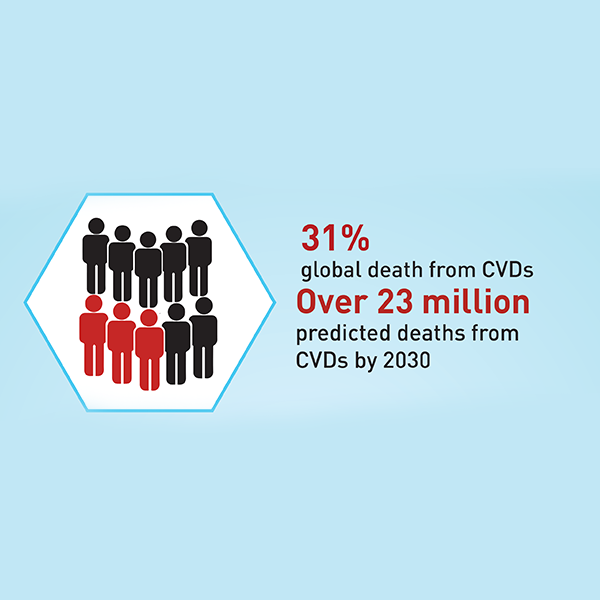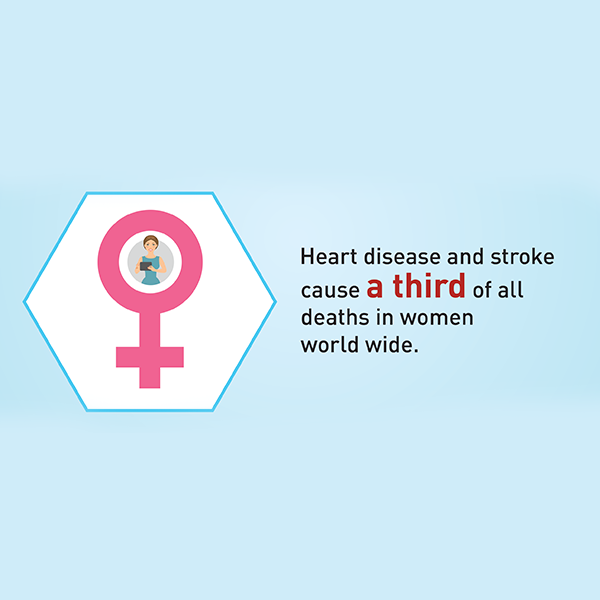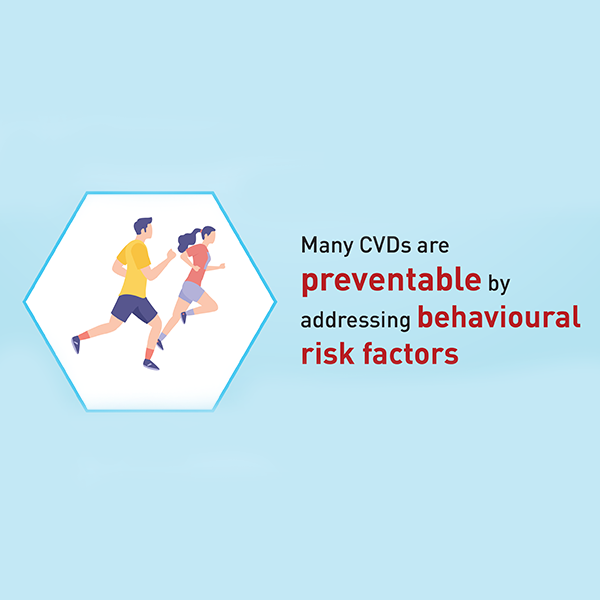Heart Care
How Much Do You Know About Heart Disease ?

Heart disease is a term covering any disorder of the heart or in general it means that the heart is not working normally.

Also known as Cardiovascular Diseases (CVDs).

Most people think of heart disease as one condition. But in fact, heart disease is a group of conditions with many different root causes.
About Cvds - Global Facts And Figures
You can reduce your risk for developing heart disease by learning about the various types of heart disease, understanding the symptoms associated with heart disease and adopting heart-healthy lifestyle strategies.
Heart Disease (CVD) A Global Problem, But With Solution



Types Of Heart Diseases
Heart Valve Disease
Heart Valve Disease
- The heart’s valves keep blood flowing through the heart in the right direction.
- When one or more of your heart valves do not work correctly ; may lead to stenosis ,(Valves may get narrowed), regurgitation or insufficiency (leak) or prolapsed (not closed properly)
- You may be born with valvular disease, or the valves may be damaged by conditions like rheumatic fever, infections connective tissue disorders, and certain medications or radiation treatments for cancer.
Signs And Symptoms
- Heart murmurs
- Shortness of breath
- Fatigue and swelling in ankles ,feet ,legs and neck veins
- Palpitations, rapid thumping or a pounding sensation in your chest
- Chest pain
- Fainting or light-headedness
Heart Failure
Heart Failure
- Chronic ,progressive condition where the heart cannot pump enough blood for your body, may involve left , right or both sides of the heart
- If you have heart failure your heart still works but because it is less effective your organs do not get enough blood and oxygen.
- Heart failure tends to affect older people more often
Signs And Symptoms
- Shortness of breath/ trouble in breathing
- Fatigue and swelling in ankles ,feet ,legs and neck veins
- Persistent coughing or wheezing
- Lack of appetite, nausea
- Confusion, impaired thinking
Coronary Heart Diseases
Coronary Heart Diseases
- It refers to the disease of the arteries to the heart and their resulting complications, such as angina and heart attacks
Arrhythmia
Arrhythmia
- An arrhythmia is a problem with the rate or rhythm of the heartbeat, where the heart beats irregularly, too fast or too slow.( A typical harmless irregular heart beat)
- Most arrhythmias are not dangerous, but some can be serious or life threatening
Signs And Symptoms
- Fatigue or weakness
- Dizziness or lightheadedness
- Fainting or near-fainting spells
- Rapid heartbeat or pounding in the chest
- Shortness of breath and anxiety
- Chest pain or pressure
- In extreme cases, collapse and sudden cardiac arrest
- Pauses between heart beat
- Heart palpitations
Cardiac arrest
Cardiac arrest
- A cardiac arrest occurs when the heart suddenly stops beating. It is often caused by an electrical problem that causes the heart muscle to beat ineffectively.
- It can come on suddenly, or in the wake of other symptoms.
- Cardiac arrest is often fatal, if appropriate steps aren’t taken immediately.
- A heart attack can sometimes cause a cardiac arrest.
- In people with coronary heart disease, cardiac arrest is often preceded by chest pain and other symptoms.
- Prompt response to chest pain may stop a heart attack causing cardiac arrest Urgent treatment is required to get the blood moving around the body and to restart the heart.
Causes of cardiac arrest
- May be caused by almost any known heart condition.
- It can also be caused by trauma, such as a fall or car accident, breathing conditions and allergic reactions. Sometimes there is no identifiable cause
Cardiac arrest can strike without warning
Do you suspect that someone is experiencing cardiac arrest? Here are the signs:
- Sudden loss of responsiveness: The person doesn’t respond, even if you tap him or her hard on the shoulders, or ask loudly if he or she is OK. The person doesn’t move, speak, blink or otherwise react.
- No normal breathing:The person isn’t breathing or is only gasping for air.
What to do in cardiac arrest/first aid in cardiac arrest?
- As soon as the heart stops beating, blood can no longer flow to the brain, heart and lungs.
- A person in cardiac arrest will be unconscious and will stop breathing or will not be breathing normally (they may make gasping noises or may be breathing irregularly).
- Make sure it is safe to approach. Check for any response from the victim. Tilt the head back, lift the chin and check breathing
- If someone is not conscious or isn’t breathing normally, it is likely they are having a cardiac arrest. They need urgent help!
- Call emergency No. immediately and ask for an ambulance
- https://www.world-heart-federation.org/world-heart-day/world-heart-day-2019/cvds/ Cited on 18th Aug 2019 ;World Heart Federation
- https://www.heartfoundation.org.nz/your-heart/heart-conditions/heart-valve-disease; Adapted from Heart Foundation ; cited on 20th Aug 2019
- https://www.heart.org/en/health-topics/heart-failure/what-is-heart-failure; Adapted from Heart Foundation ; cited on 20th Aug 2019
- https://www.heart.org/en/health-topics/heart-failure/warning-signs-of-heart-failure; Adapted from Heart Foundation ; cited on 20th Aug 2019
- https://www.heartfoundation.org.nz/your-heart/heart-conditions/coronary-artery-disease; Adapted from Heart Foundation ; cited on 20th Aug 2019
- https://www.heart.org/en/health-topics/arrhythmia/about-arrhythmia;Adapted from American Heart Association; cited on 20th Aug 2019.
- https://www.heart.org/en/health-topics/arrhythmia/symptoms-diagnosis–monitoring-of-arrhythmia; Adapted from American Heart Association; cited on 20th Aug 2019.
- https://www.heart.org/en/health-topics/cardiac-arrest/about-cardiac-arrest; Adapted from American heart Association; cited on 20th Aug 2019.
- https://www.heart.org/en/health-topics/cardiac-arrest/causes-of-cardiac-arrest; Adapted from American heart Association; cited on 20th Aug 2019.
- https://www.heart.org/en/health-topics/cardiac-arrest/emergency-treatment-of-cardiac-arrest; Adapted from American heart Association, cited on 20th Aug 2019.




